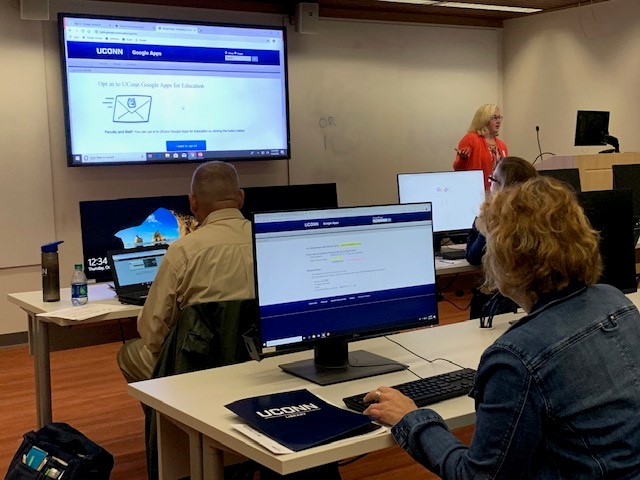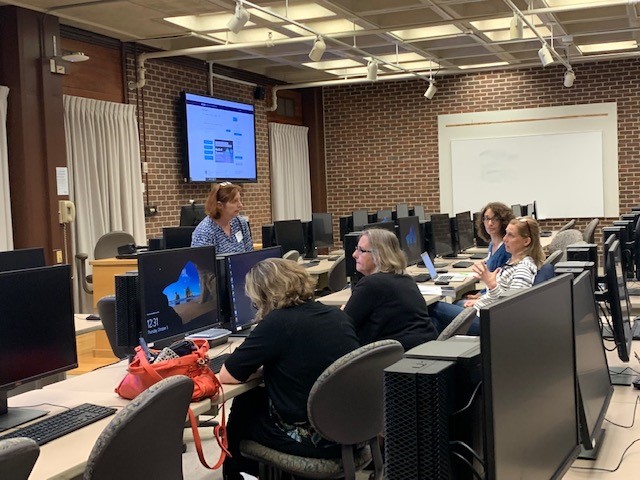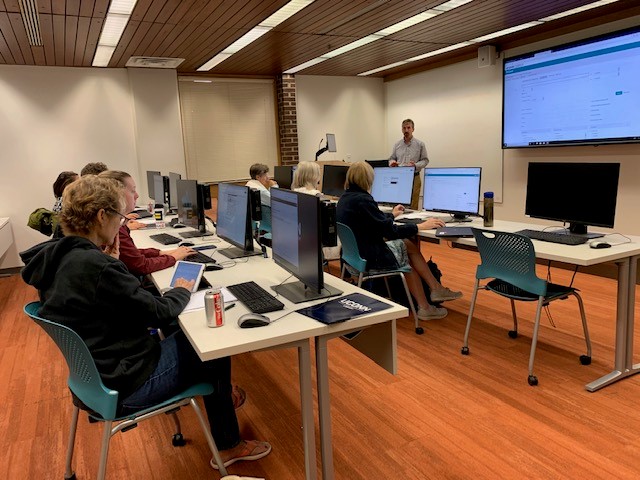On October 3rd, UConn Early College Experience Library Liaison, Shelia Lafferty welcomed a group of 25 UConn ECE affiliated Library Media Specialists at their professional development workshop. With more than 200 partner schools across the state, our library media specialists are an integral part of the ECE community. They assist over 1,400 ECE instructors utilizing University library resources in their courses.
Morning sessions included, Borrowing and Library Cards, Computer Services and an overview of the UConn Library Website and Research Guides. After lunch more small group sessions included Identifying Real News Resources, Science, English, and a tutorial of Google tools including Google Scholar and RefWorks. Many thanks to Babbidge Library staff members: Kim Wilk, Erika McNeil, Donovan Reinwald, Steve Batt, and Carolyn Mills for spending their day sharing valuable information with the group.
UConn ECE LibGuide




